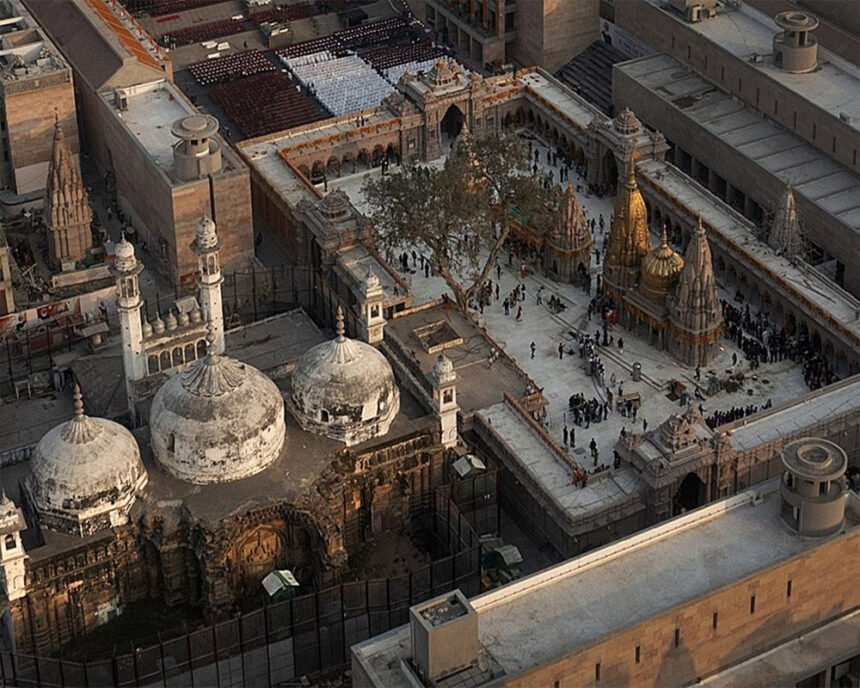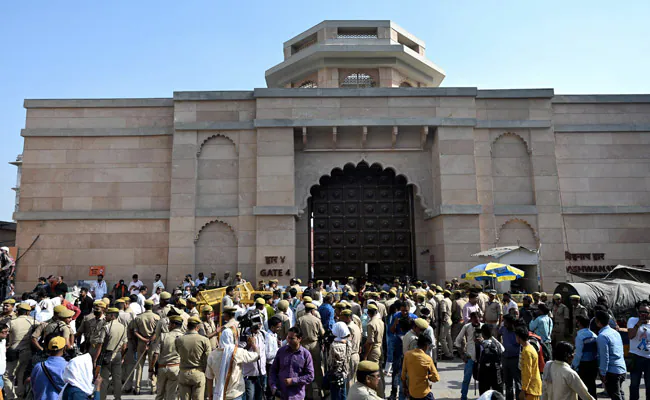Introduction
In a significant development in the longstanding Gyanvapi Mosque Varanasi court case, the Varanasi district court recently issued a ruling allowing the Hindu side to offer prayers within the premises of the Gyanvapi Mosque. This decision has sparked both celebration and controversy, with implications that extend beyond the boundaries of Varanasi.
Historical Background of Gyanvapi Mosque
The Gyanvapi Mosque. Located in the ancient city of Varanasi. Has been at the center of a legal dispute between Hindu and Muslim communities for decades. The origins of the dispute can be traced back to historical claims regarding the ownership and religious significance of the land on which the mosque stands. For Hindus, the site is believed to be sacred as it is said to house remnants of a Hindu temple dedicated to Lord Shiva. On the other hand, Muslims assert their right to the mosque, which has been a place of worship for centuries.
Recent Ruling by Varanasi District Court
The recent ruling by the Varanasi district court represents a significant development in the ongoing legal battle over the ownership and use of the Gyanvapi Mosque complex. The court has allowed the Hindu side to perform prayers in the southern cellar of the mosque, known as ‘Vyas Ka Tehkhana’, and has directed the district magistrate to facilitate arrangements for the same. This decision has been welcomed by the Hindu community, with advocates representing the Hindu side expressing satisfaction over the court’s verdict.
Reaction from Hindu and Muslim Communities
Vishnu Shankar Jain. The lawyer representing the Hindu side, hailed the court’s decision as a victory for religious freedom. Stating that “everyone will have the right to perform Puja” within seven days. However, the ruling has met with opposition from the Muslim side. With the Anjuman Intezamia Masjid Committee’s counsel. Akhlaque Ahmad. Announcing plans to challenge the verdict in the higher court.
The Gyanvapi Mosque Varanasi court case has been marked by a series of legal twists and turns, with each ruling shaping the trajectory of the dispute. In January 2024, the Varanasi district court appointed the district magistrate as the receiver of the cellar, directing him to ensure its safety and prevent any alterations. Subsequently, a district administration team completed the formalities related to the district magistrate assuming custody of the cellar, setting the stage for the recent court ruling allowing Hindu prayers.
ASI Survey Findings and Their Impact
The legal battle over the Gyanvapi Mosque complex has also seen interventions from the highest judicial authority in the country. In 2022, the Supreme Court ordered the sealing of the ‘wazukhana’ area within the mosque premises. Pending a survey by the Archaeological Survey of India (ASI). The sealing of this area. Where a ‘Shivling’ is believe to be located. Was intend to preserve the site pending further investigation into its historical significance.
The ASI survey, conducted in August 2023, yielded findings that have added complexity to the Gyanvapi Mosque Varanasi court case. The ASI report concluded that a pre-existing Hindu temple existed on the site before the construction of the mosque. Providing evidence to support the claims made by the Hindu side. The report cited inscriptions. Architectural remains. And scientific studies as evidence of the temple’s existence. Further fueling debate over the site’s history and ownership.
The recent ruling allowing Hindu prayers within the Gyanvapi Mosque complex has reignited tensions between the Hindu and Muslim communities in Varanasi. While the Hindu side views the court’s decision as a validation of their religious rights and historical claims. The Muslim side sees it as a threat to the sanctity of the mosque and an infringement on their religious freedom. As both sides prepare to contest the ruling in higher courts. The legal battle over the Gyanvapi Mosque Varanasi court case shows no signs of abating.
Also Read : “7 Chiranjeevi: Immortal Legends of Hindu Mythology”
In conclusion, the Gyanvapi Mosque Varanasi court case represents a complex legal and religious dispute with far-reaching implications. The recent ruling allowing Hindu prayers within the mosque complex has reignited tensions between the Hindu and Muslim communities and set the stage for further legal battles. As the case unfolds. It underscores the challenges of navigating issues of faith, history. And identity within India’s diverse and pluralistic society.







